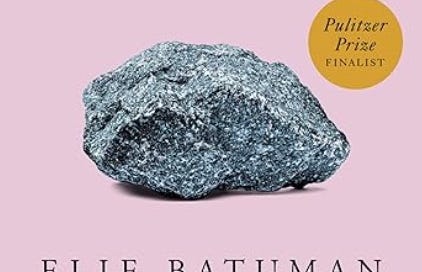BookLife Review by Carol O'Day: The Idiot by Elif Batuman
Turkish-American, Harvard University freshman, coming of age, teaching English in Hungary, Budapest, Russian language learning, philosophy, classics, linguistics, romance
Elif Batuman’s novel, The Idiot, is a Pulitzer Prize finalist work. By definition, it is critically acclaimed. Since I failed to connect with this novel, I take a hard look at what it is about this novel that I missed.
Selin is a highly intelligent, Turkish-American freshman at Harvard University. She is experiencing Harvard as an exploration and quest for knowledge and truth, in the way that many college freshmen do. She visits classes to see whether the topics might be something she likes. She has a deep interest in linguistics and classics. She only mildly connects with her randomly assigned roommates. She forms a friendship with a young Serbian, Svetlana, whom she meets, together with her love interest, Ivan, a senior, in a Russian class.
Selin and Ivan develop an odd relationship. It is 1995 and email is new. The two begin sending each other thought-pieces via email. At times one email responds to the other, at other times the content seems random, a philosophical query of sorts, one meant for deep discussion. Selin is an only child, hails from New Jersey and lived a somewhat sheltered and economically modest life before arriving at Harvard. Ivan is Hungarian, and is worldly, having visited several countries. Their communications and their relationship often seemed non-linear and disjointed. It was intense but somehow lacked intimacy. I was stumped as to whether this was their respective idiosyncrasies, or whether the author meant to depict youth and cultural differences. I remained stuck on just plain odd.
Selin is smitten, though Ivan remains elusive, is hot and cold and she later learns he has a girlfriend. For reasons that continue to escape me she agrees to spend her freshman summer in the Hungarian countryside, largely, it seems, because Ivan will spend a part of the summer in Budapest, before he departs, for good, to Berkeley, California for graduate school. Selin does not speak Hungarian, only some Turkish. There is no certainty Selin will see much of Ivan in Hungary. This is the era before cell phones. Selin will live with a series of host families in the village where she will teach English. Off she goes.
Selin’s experiences in Hungary are even more odd than her esoteric romp through courses at Harvard. She works to make learning fun for her students, which is not always appreciated by their strict Hungarian parents. She is welcomed but there is an aggressive and forward undertone to many of her hosts, who demand much of her time and a great deal of attention. She is taken on field trips, though not asked if she is interested in going on them. She has no mode of independent transportation. She is essentially a willing hostage to the experience, which I confess, made me squirm.
Selin does manage to see Ivan a handful of times during the summer, but their relationship exists in an eddy that seems not to progress, stalled in part due to their different communication challenges and the lack of clarity surrounding their respective level of interest in one another. Their time together ends, Ivan departs for Japan with his family before his time at Berkeley, and Selin moves on to Turkey where she joins her mother, some aunts and some cousins.
I remain at a loss as to whether Selin’s journey was intended to capture the awkwardness of coming-of-age, the enormous growth curve that is college, or higher education in general, or the cultural differences that divide us despite our genuine efforts to commune. The writing is strong. I walk away from this book humbled by my own incomplete education in classics, linguistics, and Turkish and Hungarian histories and cultures which are little known or broadcast in the U.S. and yet, the novel did not sufficiently relay for me a notable slice of either culture that either intrigued or attracted me. Rather, I found more of it off-putting than I liked to admit. Selin embraced the experience on a level that I felt certain I would not. Her patience, her curiosity, her forbearance and her general lack of expectation were decidedly (and admirably) against the American stereotype, and I admit, I am not proud of the realization that her adventure to Hungary is not one I wish I had undertaken.
This book falls into the category of books that I felt I “should” read–it is a Pulitzer Prize finalist for goodness sake and one which I persisted to finish, but cannot say I enjoyed. Its sequel, Either/Or, sits on my bedside table and I wonder when I might find the fortitude to open it. Perhaps it will be when I feel a need to grow my humility and expand my horizons further, maybe the same week I decide that I will take up jogging, simply because it’s good for me.
Support local bookstores and BookLife: Reviews for Readers by purchasing The Idiot using the link below:
Purchase The Idiot, by Elif Batuman
Purchase Either/Or, by Elif Batuman





